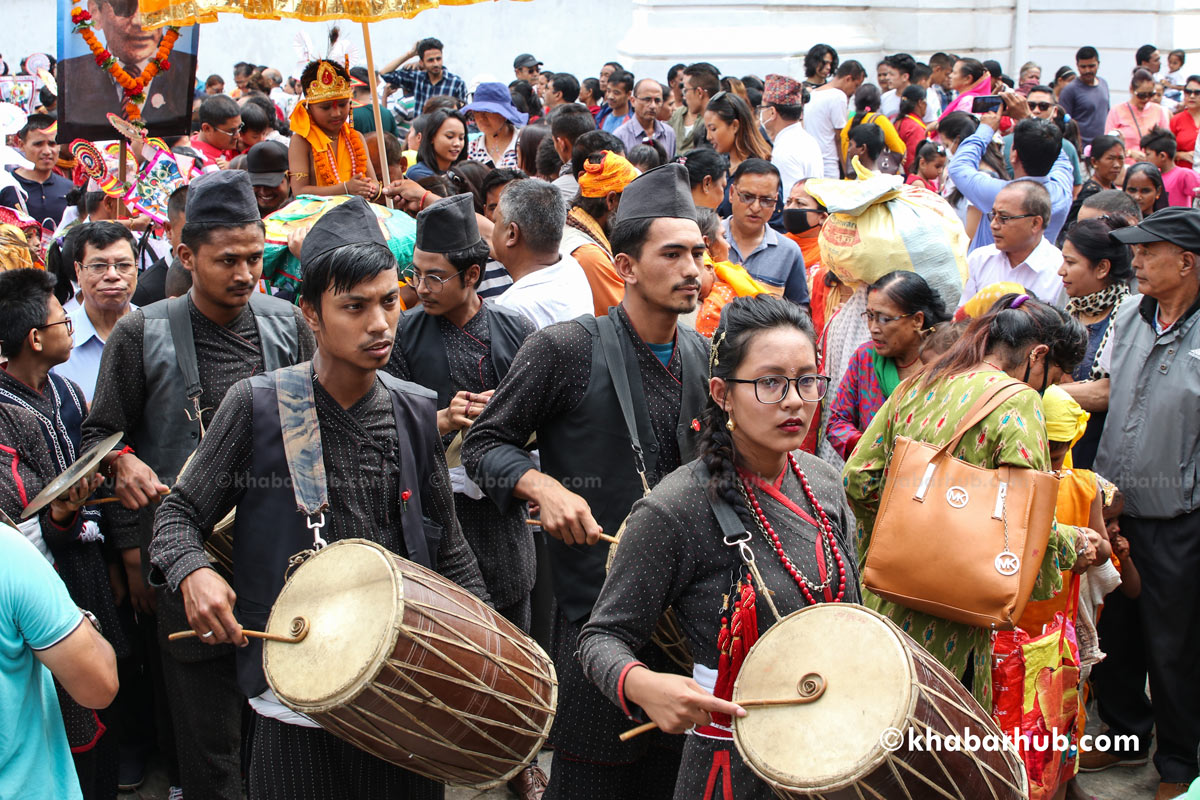0%

People observing Gaijatra Festival/File Photo
BHAKTAPUR: This year’s Gaijatra of the ‘cow festival’ has kicked off in Bhaktapur district from this morning and would continue for seven days.
This year’s Gai Jatra Festival is being marked with much fanfare, gaiety, humor, satire, and entertainment in Bhaktapur.
Celebration of Gai Jatra Festival was limited to mere formalities in the past two years due to corona virus infection.
The Newar community here marks this festival in memory of their deceased relatives wishing for their eternal peace.
From early morning today, the people have taken out rallies dressed in the attire of cows visiting the nook and corner in the city.
The festival, beginning on the first day of the waning moon in the month of Bhadra (Bhadra Pratiprada) as per the lunar calendar, lasts for a week.
During this time-honored tradition, people of all ages in the guise of cows and lunatics go around the city, wearing odd costumes to commemorate those who died during the past one year.
The bereaved families offer fruits, bread, beaten rice, curd, and money to those participating in the procession including the cows. Culture expert Rameshowr Shrestha said that, as per the Hindu religious anthologies, performance of Gaijatra would ensure provide eternal peace to the dead souls.
This festival is believed to have started during the time of King Pratap Malla, who, in a bid to console his queen, grieved at the death of her son in a smallpox epidemic and ordered his people to organize humour and satire programmes in various comic postures.
This tradition remained continued in the form of the Gaijatra festival during which people also vent out their feelings towards social and political anomalies, human follies and other contemporary affairs through comic skits, cartoons, and the like. However, the culture experts in Bhaktapur believe that the festival was started during the last stage of Lichchhavi regime before the 14th century.
RSS